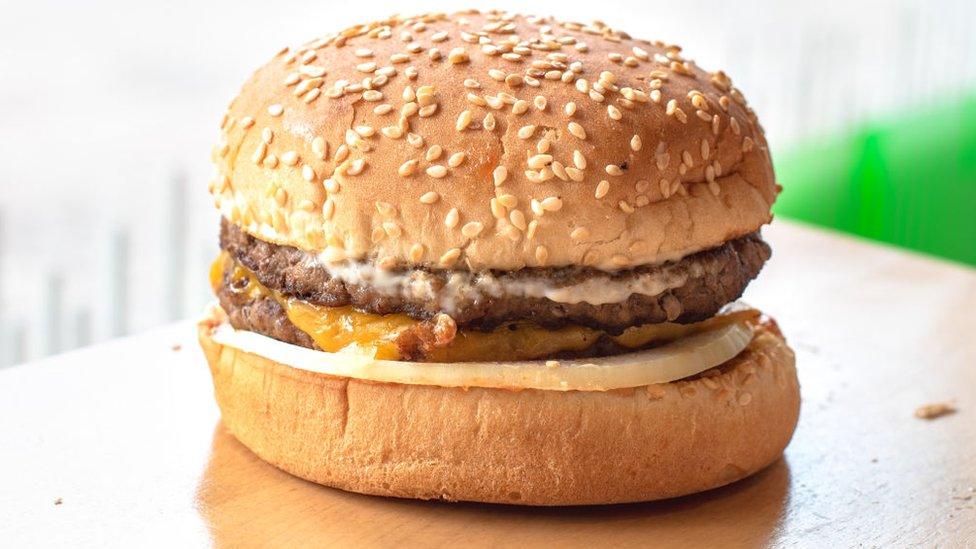Hunger 'can lead to poor decisions', Dundee University study finds
- Published

The scientists said hunger "significantly" altered people's decision-making
Making important decisions on an empty stomach can lead to poor choices, according to researchers.
A study found hunger made people more likely to settle for a small reward sooner, rather than wait for a delayed but larger reward.
The scientists, from the University of Dundee, said hunger "significantly" altered people's decision-making.
There was also a danger those in poverty may make decisions that entrench their situation, they said.
A group of 50 participants were tested twice for the study - once when they had eaten normally and once having not eaten anything that day.

Dr Benjamin Vincent conducted the study on 50 volunteers
Dr Benjamin Vincent, who carried out the study, said that people generally knew that they should not go food shopping when hungry.
He said: "Our research suggests this could have an impact on other kinds of decisions as well.
"Say you were going to speak with a pensions or mortgage adviser.
"Doing so while hungry might make you care a bit more about immediate gratification at the expense of a potentially more rosy future."
The researchers noted that if you offered people a reward now or doubled the reward in the future, they were normally willing to wait for 35 days to double the reward, but when hungry, this fell to three days.
Dr Vincent said: "This is an aspect of human behaviour which could potentially be exploited by marketers, so people need to know their preferences may change when hungry."
The study is published in the latest edition of the journal Psychonomic Bulletin and Review.